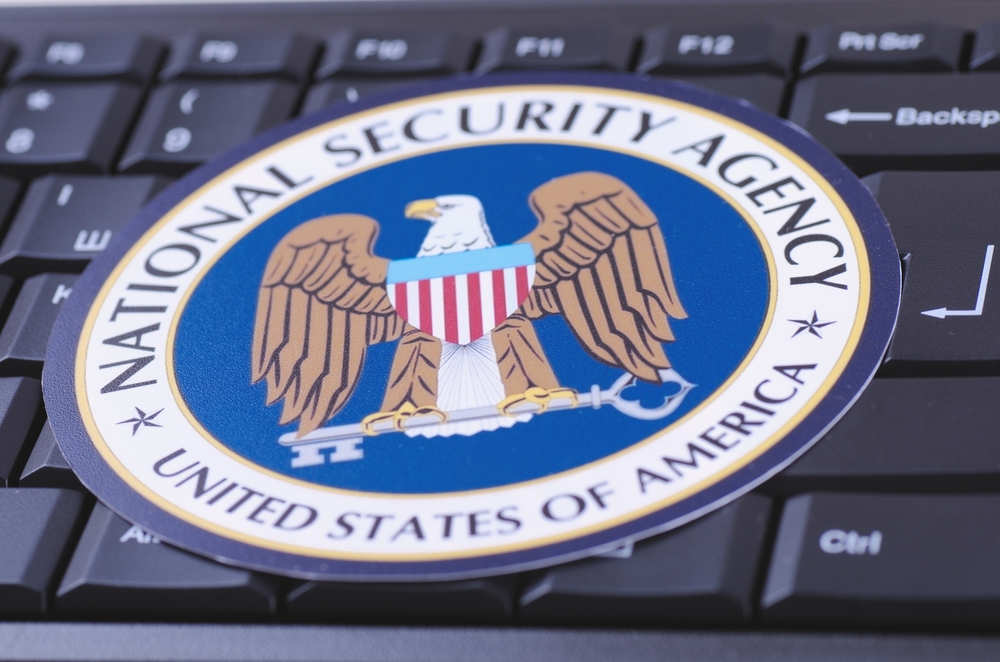US security agency 'linked to Baltimore hack'
EternalBlue tool, used to exploit a flaw of the same name, allegedly linked to National Security Agency


A tool developed by the US National Security Agency (NSA) that exploits a flaw in Windows is behind the ongoing ransomware attack on the city of Baltimore, according to reports.
It's called EternalBlue and according to The New York Times, it's been used to shut down Baltimore's government, locking employees out of email accounts and residents out of essential online services since 7 May.
Confusingly, EternalBlue exploits a vulnerability also called EternalBlue, which is a flaw in certain versions of Microsoft's Windows XP and Vista systems, allowing hackers to execute remote commands on their target. The EternalBlue tool was developed by the NSA in the early part of this decade and was in use for more than five years, according to the Washington Post, until it was stolen from the agency in April 2017 by the hacking group The ShadowBrokers, which promptly leaked it online. .
The EternalBlue flaw has since been used to cause cyber destruction around the world, including high-profile attacks such as WannaCry in May 2017, the NSA being forced to come clean to Microsoft, and the NotPetya attacks in June of the same year.
Now EternalBlue is reportedly behind the Baltimore ransomware attacks that have shut the city down for almost a month and the local government want answers from the NSA. The agency has never confirmed how it came to lose control of its hacking tool, nor officially commented on the affair.
Some have criticised Baltimore's, however, saying that if the ransomware is ExternalBlue-based the city has had plenty of time to update its systems and close off the vulnerability.
"EternalBlue was released over two years ago. If an organisation has substantial numbers of Windows machines that have gone 2 years without patches, then that's squarely the fault of the organization, not EternalBlue," tweeted ethical hacker Rob Graham.
Sign up today and you will receive a free copy of our Future Focus 2025 report - the leading guidance on AI, cybersecurity and other IT challenges as per 700+ senior executives
Baltimore's government hasn't been able to send and receive emails since the attack and some of its employees have tried to sign up for Gmail accounts to continue with work. But these accounts were stopped, instantly, by Google's systems.
In a statement to The Verge, a Google spokesperson said its security systems had detected the creation of several accounts in a short period of time and had automatically shut them down.
"We have restored access to the Gmail accounts for the Baltimore city officials," the spokesperson said. "Our automated security systems disabled the accounts due to the bulk creation of multiple consumer Gmail accounts from the same network."
Bobby Hellard is ITPro's Reviews Editor and has worked on CloudPro and ChannelPro since 2018. In his time at ITPro, Bobby has covered stories for all the major technology companies, such as Apple, Microsoft, Amazon and Facebook, and regularly attends industry-leading events such as AWS Re:Invent and Google Cloud Next.
Bobby mainly covers hardware reviews, but you will also recognize him as the face of many of our video reviews of laptops and smartphones.
-
 Everything we know so far about the Nike data breach
Everything we know so far about the Nike data breachNews Hackers behind the WorldLeaks ransomware group claim to have accessed sensitive corporate data
-
 There’s a dangerous new ransomware variant on the block – and cyber experts warn it’s flying under the radar
There’s a dangerous new ransomware variant on the block – and cyber experts warn it’s flying under the radarNews The new DeadLock ransomware family is taking off in the wild, researchers warn
-
 Hacker offering US engineering firm data online after alleged breach
Hacker offering US engineering firm data online after alleged breachNews Data relating to Tampa Electric Company, Duke Energy Florida, and American Electric Power was allegedly stolen
-
 Cybersecurity experts face 20 years in prison following ransomware campaign
Cybersecurity experts face 20 years in prison following ransomware campaignTwo men used their tech expertise to carry out ALPHV BlackCat ransomware attacks
-
 15-year-old revealed as key player in Scattered LAPSUS$ Hunters
15-year-old revealed as key player in Scattered LAPSUS$ HuntersNews 'Rey' says he's trying to leave Scattered LAPSUS$ Hunters and is prepared to cooperate with law enforcement
-
 The Scattered Lapsus$ Hunters group is targeting Zendesk customers – here’s what you need to know
The Scattered Lapsus$ Hunters group is targeting Zendesk customers – here’s what you need to knowNews The group appears to be infecting support and help-desk personnel with remote access trojans and other forms of malware
-
 Impact of Asahi cyber attack laid bare as company confirms 1.5 million customers exposed
Impact of Asahi cyber attack laid bare as company confirms 1.5 million customers exposedNews No ransom has been paid, said president and group CEO Atsushi Katsuki, and the company is restoring its systems
-
 The US, UK, and Australia just imposed sanctions on a Russian cyber crime group – 'we are exposing their dark networks and going after those responsible'
The US, UK, and Australia just imposed sanctions on a Russian cyber crime group – 'we are exposing their dark networks and going after those responsible'News Media Land offers 'bulletproof' hosting services used for ransomware and DDoS attacks around the world


